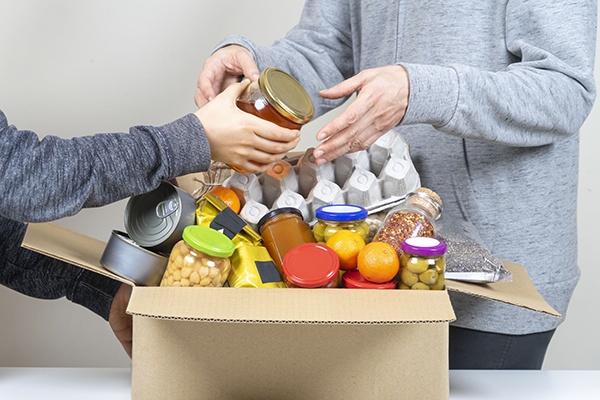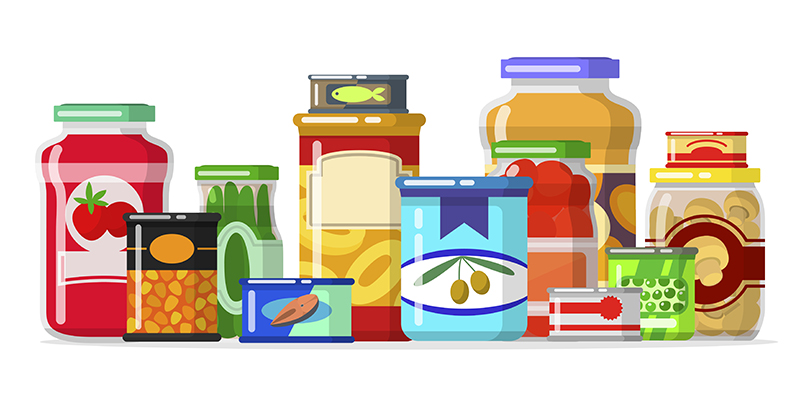Discovering the Objective and Vision Behind Food Pantry Lockhart
Discovering the Objective and Vision Behind Food Pantry Lockhart
Blog Article
Discover Ways to Contribute and Assistance a Food Kitchen Near You
Supporting a food pantry in your neighborhood can be a transformative experience, not only for those in requirement but also for those who choose to contribute. By understanding the certain demands of neighborhood cupboards, you can tailor your initiatives to make an extra significant influence. Whether via food donations, volunteering, or economic assistance, each activity plays an important function in attending to food instability. As you consider your alternatives, there are several efficient methods that can improve your contribution and foster area involvement-- each with its own unique benefits waiting to be explored.
Understand Food Cupboard Requirements
Comprehending the diverse demands of food cupboards is necessary for efficient contributions. Food cupboards offer as important resources within areas, attending to food insecurity amongst families and people. Each kitchen might have special needs based on its place, target group, and operational ability. To make the most of the influence of contributions, it is vital to identify and recognize these specific requirements.
Lots of food pantries focus on non-perishable items such as canned items, pasta, and rice, as these products have longer service life and can be distributed in time. In addition, some pantries may call for personal treatment items, like toiletries and hygiene items, which are commonly overlooked however are essential for preserving self-respect among receivers.
Moreover, comprehending seasonal requirements can likewise boost contributions. During chillier months, cupboards might look for contributions of cozy clothing or coverings, while fresh produce is typically extra in need throughout the summer. Engaging with pantry agents can offer valuable insights into their present demands, making certain that payments are appropriate and impactful. By aligning donations with the particular demands of food kitchens, donors can dramatically boost the performance of their assistance, eventually fostering a stronger and extra resistant area.
Types of Food Donations
Food pantries regularly get a range of food contributions, each type playing a vital role in fulfilling the diverse needs of their customers. Non-perishable products, such as canned items, pasta, rice, and dried out beans, are staples as they have a lengthy life span and can be stored conveniently. These items are necessary for developing balanced dishes and are typically the backbone of food pantry offerings.
Subject to spoiling food donations, consisting of fresh fruits, veggies, milk products, and healthy proteins like meat and eggs, are also indispensable. These items give important nutrients and selection, though they require mindful handling and prompt circulation to make certain safety and quality.
In addition, some food pantries accept ready dishes, which can be specifically valuable for clients dealing with prompt food instability. Donations of cooking snacks, beverages, and components can enhance the offerings and provide convenience things.
Last but not least, specialty food items, such as gluten-free, vegan, or culturally particular items, accommodate varied nutritional demands within the neighborhood. Food Pantry Lockhart. By understanding the sorts of food donations that can be made, donors can better sustain their local food kitchens and the individuals they serve
Volunteering Opportunities Offered
Offering at a food kitchen uses a significant means to add to the battle versus hunger in the area. Food cupboards often see this depend on volunteers to assist with numerous tasks, guaranteeing that operations run smoothly and efficiently. Opportunities for participation are diverse, dealing with people with various skills and time commitments.
Usual offering functions include arranging and sorting food donations, preparing food plans for circulation, and aiding customers throughout their check outs. Furthermore, volunteers may assist with management tasks, such as information access or outreach efforts to elevate recognition regarding the pantry's reference solutions. Some food cupboards likewise offer possibilities to lead academic workshops, focusing on nourishment or food preparation skills for customers.
Volunteers can commonly select their hours, making it less complicated to fit this rewarding job into active routines. Many pantries welcome teams, allowing friends, family members, or colleagues to take part in social work together, promoting a sense of teamwork and common purpose.
Monetary Contributions and Sponsorship
Supporting a food cupboard with economic contributions and sponsorships can significantly amplify its influence on the neighborhood. Monetary contributions offer food kitchens with the flexibility to acquire important things wholesale, guaranteeing that they can meet the certain demands of their clients. Unlike food drives, where the kind and quantity of items can be unforeseeable, financial backing enables kitchens to strategically prepare their supply and respond rapidly to changing needs.
Sponsorships can also play a critical role in enhancing a food cupboard's sources. Organizations and services can partner with neighborhood food banks to fund particular programs, such as dietary education and learning efforts or unique vacation circulations. This not just provides sponsorship however likewise constructs area understanding and engagement.
Moreover, numerous food kitchens are acknowledged as tax-exempt companies, enabling contributors to declare tax deductions on their payments. This financial incentive can encourage increased giving, better enhancing the kitchen's abilities to serve those in need. Eventually, economic payments and sponsorships are essential to maintaining the procedures of food kitchens, guaranteeing they can remain to give essential support to prone populaces in their neighborhoods.

Organizing Area Food Drives
Organizing community food drives can be an effective method to collect crucial materials for neighborhood food cupboards while fostering a spirit of collaboration among citizens. To successfully initiate a food drive, begin by determining a time frame and place that will be practical for individuals. Team up with neighborhood organizations, colleges, and area organizations to help promote the event and urge wider involvement.
Following, choose the kinds of food products needed, focusing on non-perishable goods such as canned vegetables, pasta, and rice. Food Pantry Lockhart. Clearly communicate these demands to possible donors with flyers, social networks, her response and neighborhood publication boards. Setting particular objectives, such as a target variety of products to collect, can motivate individuals and produce a feeling of seriousness

Conclusion

Sustaining local food cupboards is crucial for resolving food insecurity within areas. By actively getting involved in these initiatives, areas can function together to make sure that food cupboards stay well-appointed to serve those in need.
Whether with food contributions, volunteering, or economic assistance, each action plays an essential function in addressing food insecurity. Food cupboards serve as important sources within communities, resolving food insecurity among family members and individuals.Food kitchens frequently get a selection of food donations, each type playing an essential role in satisfying the diverse requirements of their customers.Organizing area food drives can be an effective method to gather necessary materials for neighborhood food pantries while fostering a spirit of partnership amongst homeowners.Supporting neighborhood food cupboards is essential for attending to food instability within areas.
Report this page